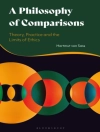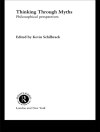This book tackles questions which revolve around the representational purport (or lack thereof) of evaluative and normative claims.Claims about what we ought to do, what is best, what is justified, or simply what counts as a good reason for action-in other words, evaluative or normative claims-are familiar. But when we pause to ask what these claims mean and what we are doing when we use them, puzzles arise. Are there facts of the matter about what ought to be done, much like there are facts of the matter about mathematics or the natural world? If so, "ought claims" are probably trying to represent the "ought facts". Alternatively, perhaps there are no evaluative facts, in which case evaluative claims are either trying to represent facts which do not exist, or evaluative claims are not in the representation business to begin with. The latter option is intriguing, and it is the subject of much recent work in expressivism, pragmatism, and semantic relativism. But if ought claims are not representing anything as factual, why do we think such claims are true or false, and what are we doing when we disagree with one another about them? This book sheds light on this important area of philosophy.This book was originally published as a special issue of the Canadian Journal of Philosophy.
Matthew S. Bedke & Stefan Sciaraffa
Normativity and the Problem of Representation [PDF ebook]
Normativity and the Problem of Representation [PDF ebook]
Achetez cet ebook et obtenez-en 1 de plus GRATUITEMENT !
Langue Anglais ● Format PDF ● Pages 338 ● ISBN 9781000657111 ● Éditeur Matthew S. Bedke & Stefan Sciaraffa ● Maison d’édition Taylor and Francis ● Publié 2020 ● Téléchargeable 3 fois ● Devise EUR ● ID 7996048 ● Protection contre la copie Adobe DRM
Nécessite un lecteur de livre électronique compatible DRM












